Deadlines loom, responsibilities pile up, and unexpected events can throw you for a loop. While some stress is normal, chronic stress can have serious consequences for your health.
Have you ever noticed how stress can leave you feeling drained or even physically unwell?
Chronic stress does more than just strain your mind—it has a dangerously serious link to the formation of blood clots.
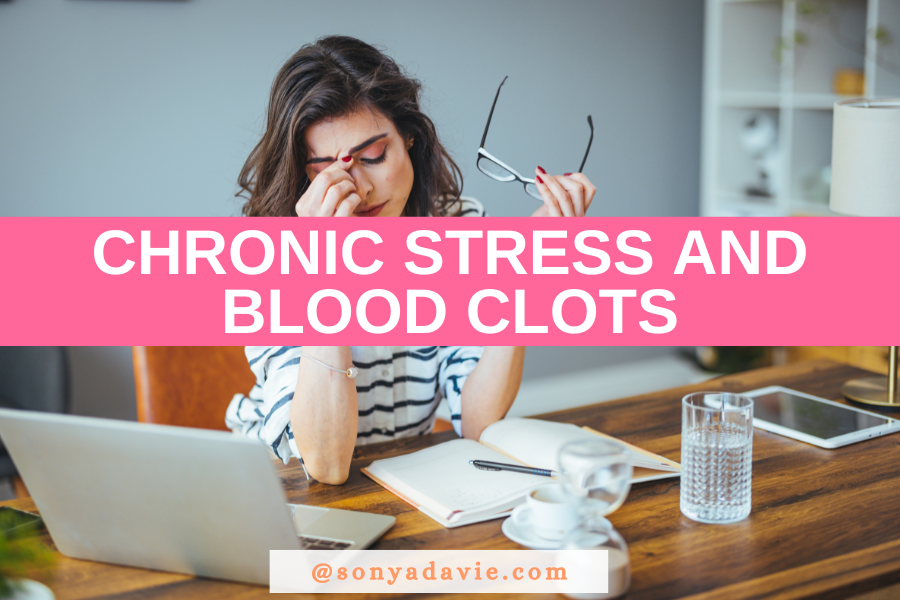
This post is all about chronic stress and blood clots.
So, how exactly does stress contribute to this?
In this blog, we’ll explore the connection, its effects on your cardiovascular system, and ways to reduce the risks.
How Does Stress Impact Your Cardiovascular System?
Chronic stress significantly affects the body, especially the cardiovascular system.
When you experience prolonged stress, your body releases hormones like adrenaline and cortisol. These hormones can raise blood pressure and increase inflammation.
As a result, your blood chemistry changes, making the blood ‘stickier’ and increasing the likelihood of clotting, a condition known as hypercoagulability.
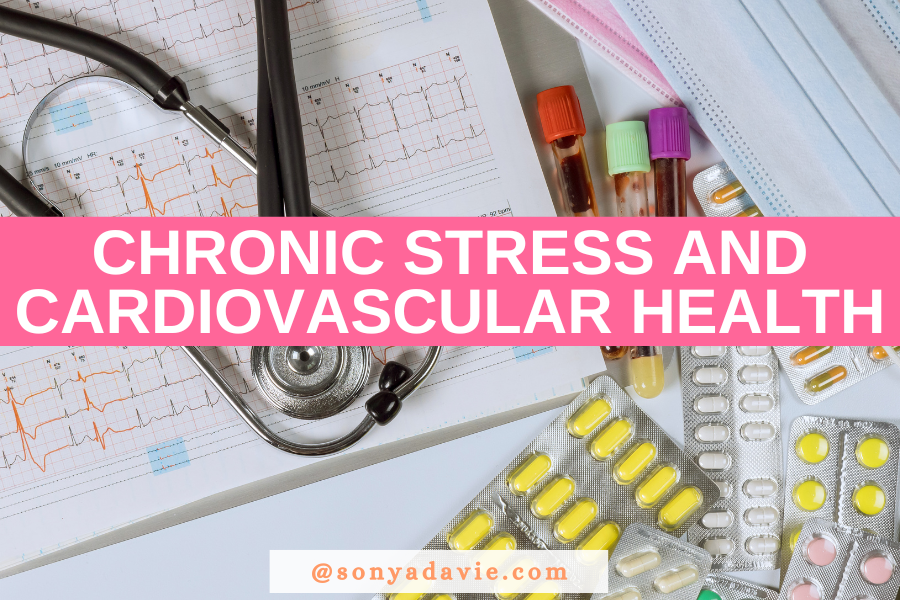
Research from the Harvard T.H. Chan School of Public Health has found that women who have experienced trauma or post-traumatic stress disorder (PTSD) are at a higher risk for venous thromboembolism (VTE), a serious blood clot disorder. Their findings highlight the close connection between chronic stress and blood clots, particularly in women exposed to trauma. (Source)
Additionally, unhealthy lifestyle habits can further strain the cardiovascular system, increasing the risk of complications related to stress.
Increased Risk of Thrombosis
Prolonged stress is linked to a higher risk of thrombosis, a condition where blood clots form in the veins. One common type of thrombosis is deep vein thrombosis (DVT), which typically occurs in the legs. DVT can be particularly dangerous because the clot may break free and travel to the lungs, leading to a pulmonary embolism. (Source)
(And fyi! If a clot breaks off, it can cause even sudden death.)
Stress-Relieving Strategies to Prevent Blood Clots
Managing stress is essential for maintaining a healthy cardiovascular system and preventing blood clots.
Regular exercise, meditation, and a nutritious diet are excellent ways to manage stress. Incorporating mindfulness practices like yoga and relaxation techniques helps counteract the effects of chronic stress and blood clots. (Source)
Additionally, staying active and moving your body can help prevent blood from becoming too thick.
This not only reduces the risk of clot formation but also improves overall heart health. Finding what works best for you, whether it’s taking walks, practicing deep breathing, or engaging in hobbies, can make a big difference.
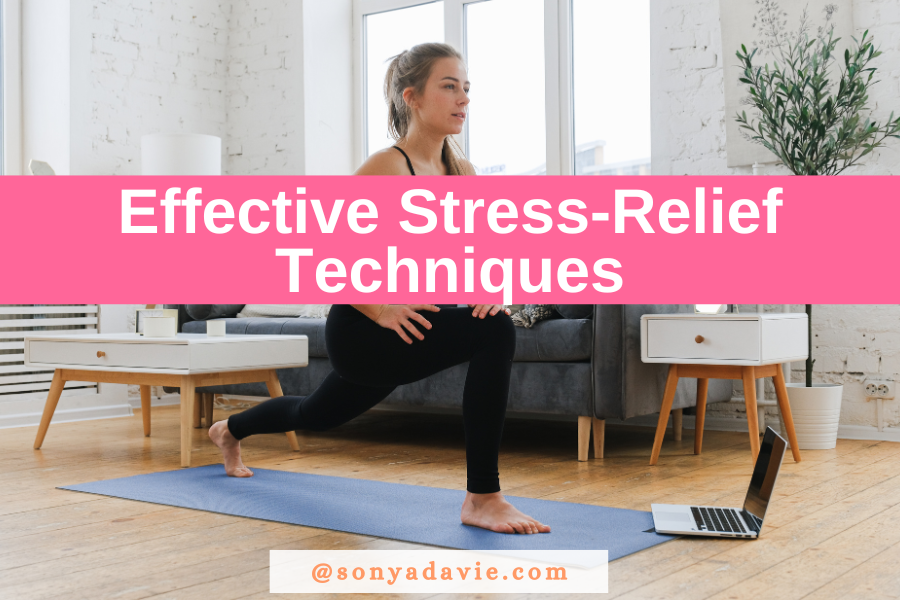
DVT and Exercise
If you or someone you know has DVT, you might wonder if exercise is safe. The truth is, getting regular physical activity can benefit those with DVT. It improves blood circulation, reducing the risk of further clot formation. In fact, aerobic activities like walking, swimming, and dancing are great for enhancing circulation, especially in the legs. (Source)
The misconception is that exercise can cause a clot to break loose, but it actually helps keep blood moving, reducing venous insufficiency (a condition where blood doesn’t flow well back to the heart).
Regular physical activity helps build stronger muscles in your legs, supporting blood flow and lowering the risks linked to chronic stress and blood clots .
What Foods Help with Blood Clotting?
Natural foods and certain supplements can help thin your blood and prevent clotting. (Source)
- Ginger – Contains anti-inflammatory and anti-clotting properties.
- Turmeric – Curcumin, the active compound in turmeric, may help prevent blood clots.
- Cinnamon – Has natural anti-clotting properties that may support heart health.
- Garlic – Known to improve circulation and reduce the risk of blood clots.
- Fatty Fish (such as salmon, mackerel, and sardines) – Rich in omega-3 fatty acids, which can help thin the blood.
- Berries (such as strawberries, blueberries, and blackberries) – Contain antioxidants and compounds that may support cardiovascular health.
- Green Tea – Rich in antioxidants and has been shown to have anti-clotting effects.
- Olive Oil – Contains healthy fats and antioxidants that may support healthy blood flow.
- Vitamin E (as a supplement with the right amount of dosage) – May help prevent blood clots by thinning the blood.
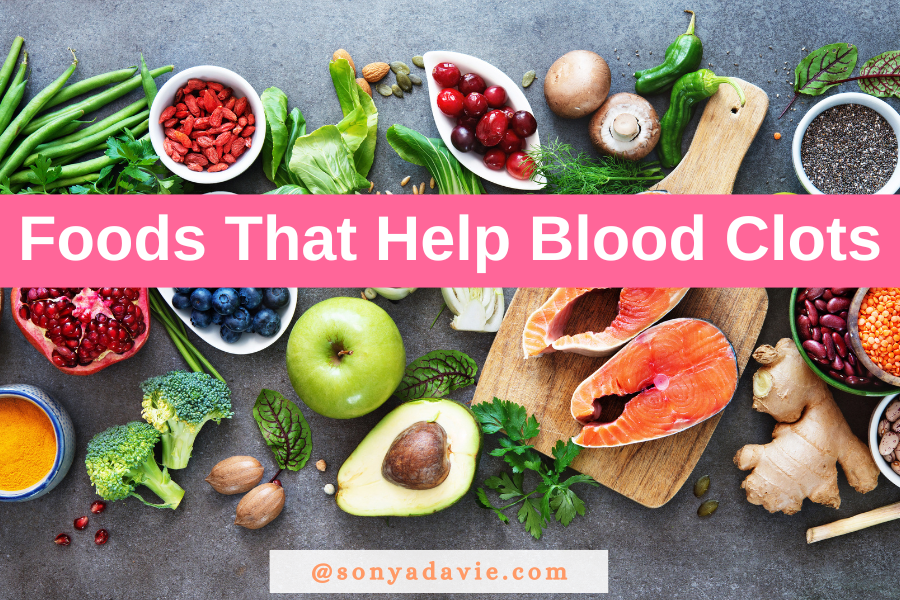
Incorporating these foods and supplements into your diet may help reduce the risk of blood clots and promote overall cardiovascular health.
However, it’s important to note that natural remedies should not replace medical treatment. If you’re at risk for blood clots, it’s crucial to consult your healthcare provider about the best management options.
While certain foods may help in prevention, they cannot dissolve existing clots or serve as a substitute for prescribed medications.
🎁 Treat Yourself or Someone Special to Stress Relief! 🎁
Are you feeling overwhelmed by the stresses of everyday life? Or do you know someone who might need a little extra support?
I’ve curated a fantastic selection of stress-relief products that make the perfect gift for yourself or a loved one.
Check out these amazing items that promise relaxation and relief!
1. Weighted Electric Neck Heating Pad for Back Pain Relief
Say goodbye to neck and shoulder tension with the NIUONSIX weighted electric neck heating pad! This innovative heating pad uses pure stone seed for weight, perfectly molding to your body and providing deeper relaxation. Its ergonomic design offers a soothing touch that helps alleviate soreness in your neck, shoulders, and upper back—perfect after a long day at work.
Why You’ll Love It: This 2 lb weighted heating pad not only relieves pain but also promotes relaxation and comfort, making it a great addition to your self-care routine. Treat yourself or gift it to someone in need of some serious relaxation!
2. Candescent Stress Balls – Hand Therapy Relief for Anxiety
Release stress and tension with these Candescent Stress Balls! Designed for fidgeting, anxiety relief, and hand therapy, this set of two motivational gel balls is perfect for adults and kids alike. They stimulate blood circulation and help alleviate stiffness and joint pain.
Why You’ll Love It: The aesthetically pleasing designs and inspiring quotes make these stress balls not only functional but uplifting. Gift these to someone special or keep a set for yourself to squeeze away the stress!
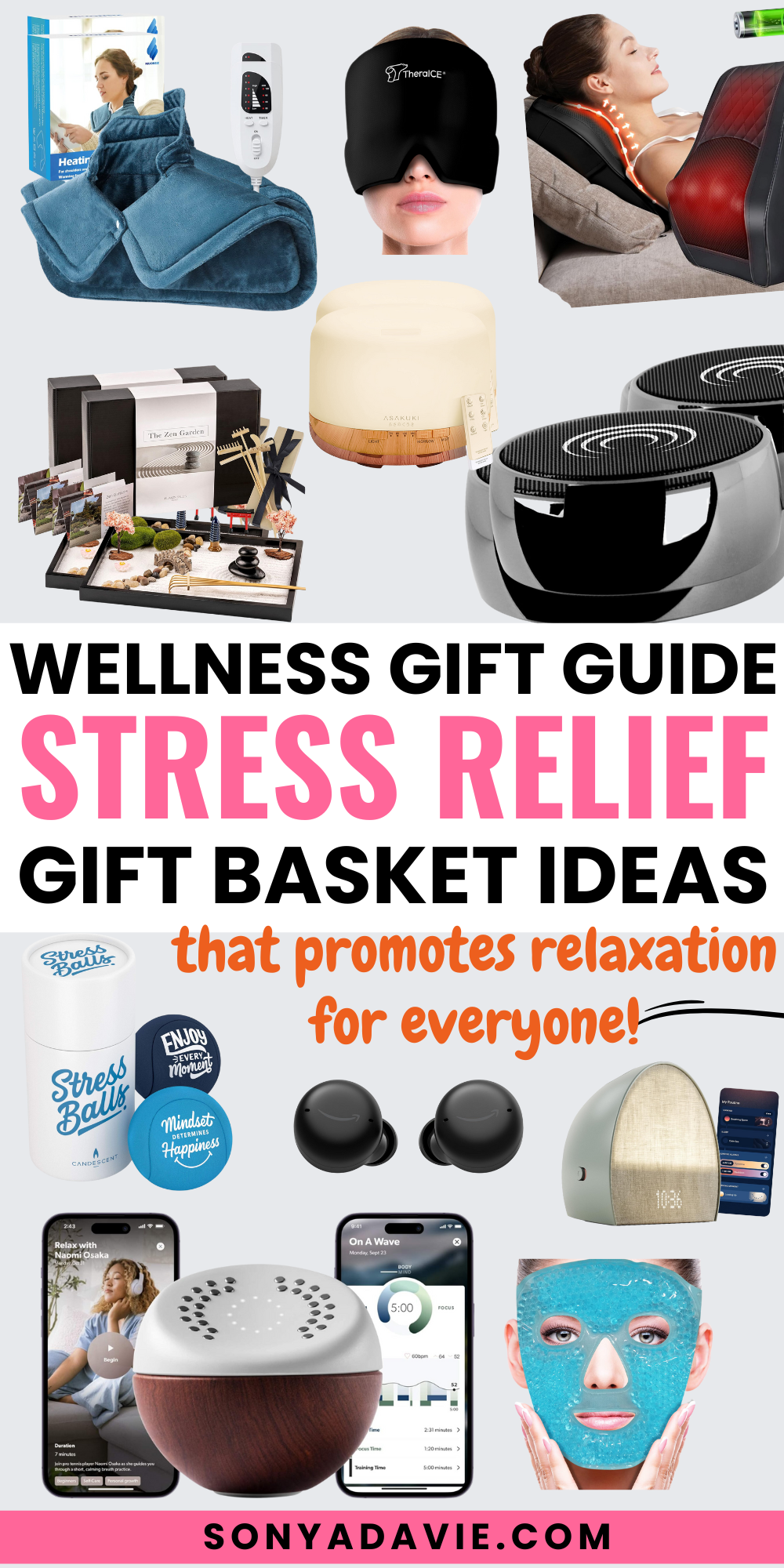
3. Boriwat Cordless Neck Massager with Heat
Experience deep relaxation with the upgraded Boriwat Cordless Neck Massager! This versatile massager fits comfortably around your neck and back, providing 3D kneading for pain relief. With adjustable settings and a wireless remote, you can customize your massage experience.
Why You’ll Love It: Perfect for those long days, this massager offers instant relief and relaxation, making it an ideal gift for yourself or a loved one.
4. Tone Therapy: Reduce Stress and Anxiety
Tone Therapy is a revolutionary tool designed to help you adapt to challenges and thrive! In just 3 minutes, this device will help you reconnect with your inner peace and inspire loving action.
Why You’ll Love It: With its effective tone sequences, you’ll find yourself feeling calm and empowered. Just two sessions a day can transform your mindset and promote lasting change.
5. Core Meditation Trainer
Elevate your meditation practice with the Core Meditation Trainer! This innovative device offers guided sessions to help you relax, reduce stress, and find your inner calm.
Why You’ll Love It: You’ll enjoy a comprehensive approach to stress relief that fits seamlessly into your life.
Explore the full collection of stress-reducing gifts and find the perfect item for yourself or someone who deserves a little pampering.
Shop the Amazon Store for Stress Reducing Products
Chronic stress and blood clots may not be the first thing you think of when you feel stressed, but the connection is very real and potentially dangerous.
By managing stress and adopting healthier lifestyle choices, you’re taking vital steps toward safeguarding your health and preventing life-threatening complications like DVT and pulmonary embolism.
Stay proactive, stay healthy, and always consult with your healthcare provider if you’re concerned about the effects of stress on your body.
This post is all about chronic stress and blood clots.
Related Post – 10 Thoughtful Fall Mental Wellness Gifts for Everyone on Your List
+ show Comments
- Hide Comments
add a comment